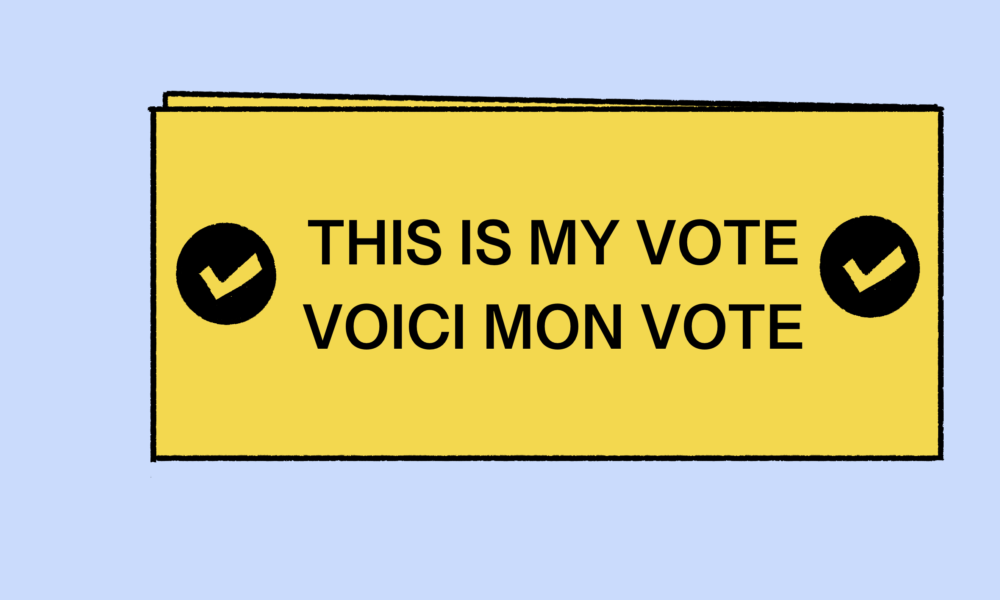Today, Oct. 7, 2025, McGill students are striking in support of Palestinian liberation. On Sept. 29, the Students Society of McGill University (SSMU) held a Special Strike General Assembly (GA), in which Students for Palestine’s Honour and Resistance (SPHR) presented a motion calling for a strike for divestment. Students exceeded the Special Strike GA’s required quorum of 500 students, and the motion passed in nearly unanimous favour. The motion was ratified on Oct. 6 by an online student vote, with a record 9190 (36.3 per cent) voter turnout: 67.5 per cent in favour, and 32.5 per cent opposing.
The motion calls on McGill to divest from companies involved in manufacturing weapons used in Israel’s ongoing genocide in Gaza, such as Lockheed Martin and Airbus, and cease research and financial partnerships with these organizations. Students are also demanding amnesty for peaceful pro-Palestine protesters who have been targeted by McGill’s disciplinary systems. This collective action represents something far more significant than just missing one day of class: it is a clear refusal to accept McGill’s institutional complicity in Israel’s genocide in Gaza.
Canada’s recognition of Palestine as a state, alongside acknowledgments from 157 of the 193 UN member states—representing 81 per cent of the international community— has marked an unprecedented shift in international pressure to hold the Israeli state accountable for its incessant violence against Palestinians. The United Nations has only now begun to explicitly define Israel’s actions in Gaza as a genocide. This recognition, while significant, is long overdue. That it took this long for global institutions to apply the correct terminology does not mean the genocide only began when it was named; it reflects a decades-long failure to respond to Palestinian suffering. However, legal and symbolic recognitions have yet to yield meaningful consequences. International institutions, including the UN, have time and time again proven largely ineffective in halting Israel’s ongoing violence, the mass killing of civilians, the use of starvation as a weapon, the bombing of hospitals and schools, sexual violence, and the deliberate targeting of children. This failure is mirrored by McGill’s continued investment in corporations complicit in these atrocities, despite urgent calls from its student body to divest.
McGill has not only failed to acknowledge its own complicity in the genocide, but has actively and unjustly suppressed student activism calling for full divestment. Following last October’s protest, the university filed an injunction specifically targeting SPHR. It also imposed ID card scanning requirements during pro-Palestinian mobilizations in April, and again Oct. 7, 2024, intensifying surveillance of student organizers. In recent months, McGill has heightened police presence and threatened students with disciplinary action for participating in peaceful demonstrations. These tactics, which are codified further through McGill’s revised Memorandum of Agreement (MoA) with SSMU, conflate all forms of pro-Palestinian activism with violence, vilifying student protestors and undermining student freedoms of expression and assembly in the process.
The timing of the strike is not coincidental. Oct. 7 marks two years since the Hamas-led attack on Israel, a tragic event that Netanyahu and his cabinet have since weaponized to justify their ongoing genocide in Gaza. Oct. 7 also marks one year since McGill shut down its campus in anticipation of pro-Palestinian protests, citing ‘security concerns.’ Today’s strike represents more than defiance of McGill’s genocidal investment profile; it reclaims a date the university has since used to frame pro-Palestinian advocacy as dangerous, and declares that the Oct. 7 attacks cannot serve as a justification for Israel’s abhorrent and incommensurable brutality toward Palestinians.
This strike’s power lies not in disruption for its own sake, but in its ability to reframe the classroom as a space for accountability. By walking out, students challenge the assumption that education is neutral. The strike is a signal to the administration that students will not remain passive when their university invests in mass violence.
Today, Oct. 7, the student body must take the opportunity the strike presents for action—not merely by skipping class, but by participating in protests, having difficult conversations, and staying vigilant, knowing that meaningful solidarity demands discomfort. To faculty, the responsibility is twofold: accommodate students who strike, and stay informed on both student politics and McGill’s financial ties in aiding genocide. And to the McGill administration, the demands are clear: End retaliatory measures against protestors. Divest from weapons manufacturers. Cut ties with the Israeli state. Let this be the last time students must strike for Palestine.









